Cadel Evans: The [cycling] gods must be crazy
Change afoot as undulating fortunes make for a vintage year
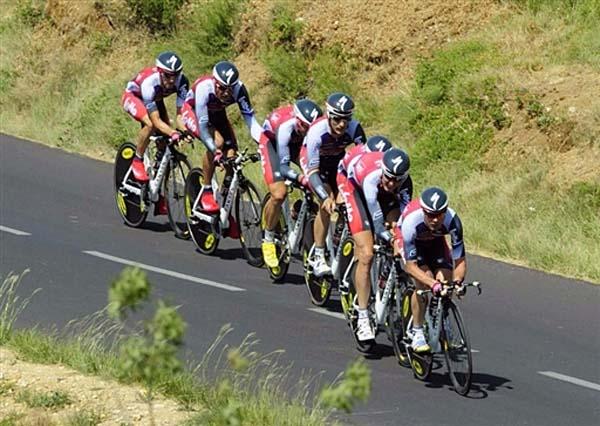
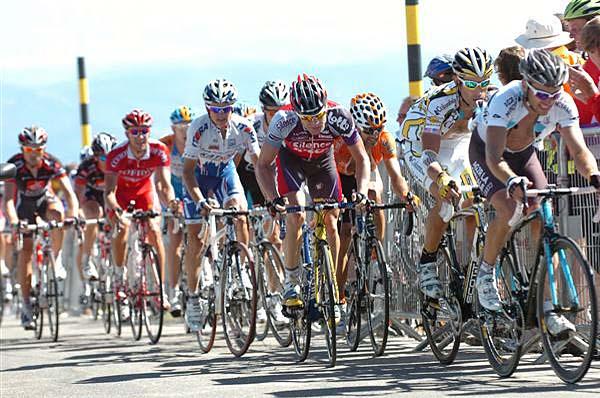
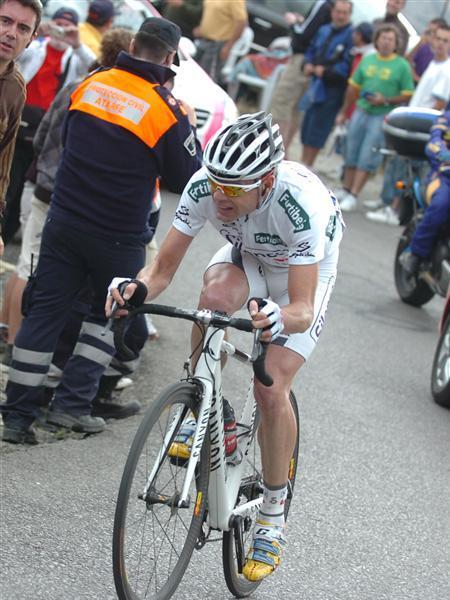
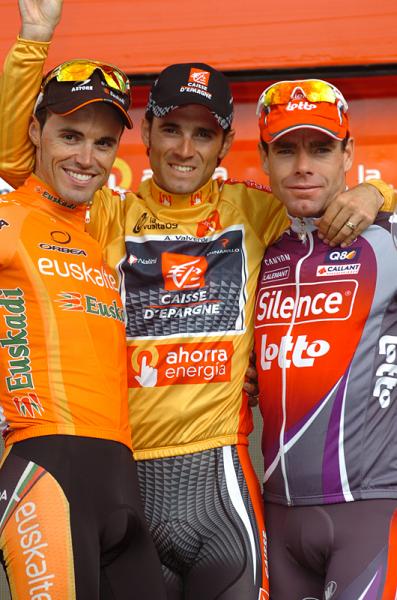
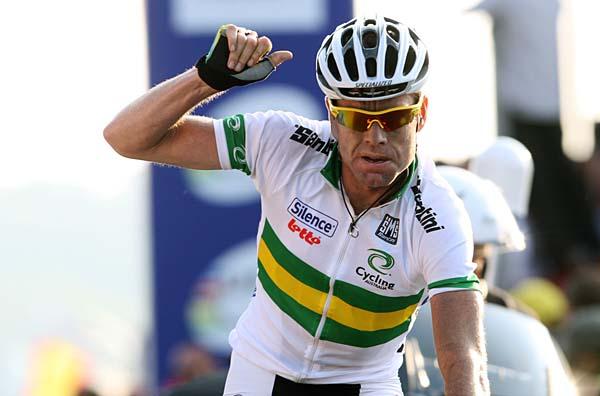
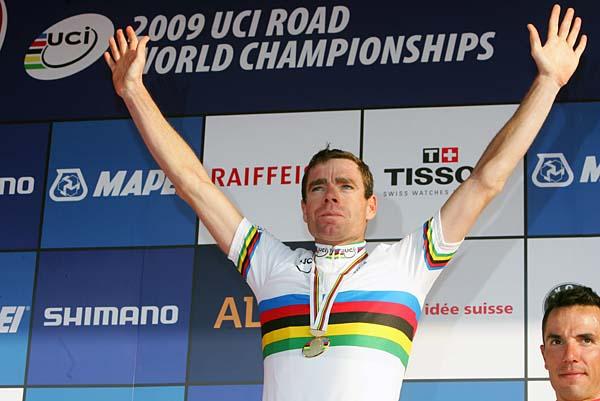
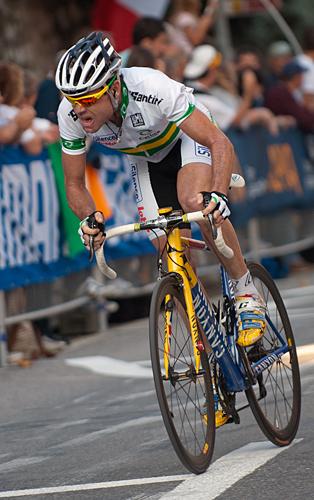
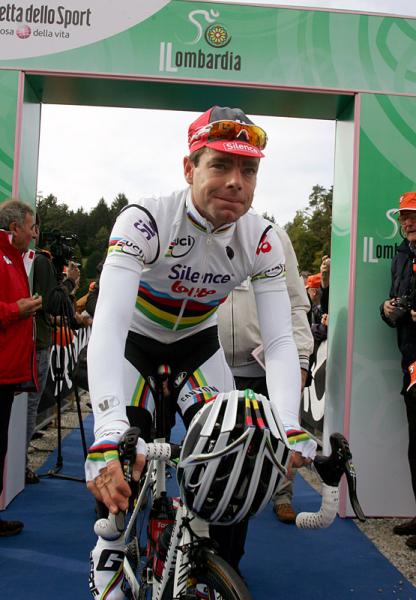
To describe Cadel Evans' season as one of peaks and troughs would be an understatement. The Australian has experienced the sport's biggest high - becoming world champion - and the most frustrating of lows - losing a Grand Tour through no fault of his own. Consequently, the year has brought frustration and ecstasy, intrigue and fatigue and culminated in the beginning of a new phase in his illustrious career.
In the process he has dealt with intense media scrutiny, speculation about his professional future and enough poor fortune to test the resolve of any of the world's best riders. Eventually vindication came in the space of almost seven hours, the Australian winning the world title in memorable circumstances amongst the people he calls neighbours to make it an unforgettable year.
An unexpected Tour experience
Heading into 2009, expectations were high for Australia's highest-profile stage racer. Two second places at the Tour de France had observers billing him as one of the favourites, although a weak support cast against the might of Astana's dream team effectively put an end to his challenge after only four stages.
"Having some idea about how we might perform in the team time trial, I was a bit like, 'I don't think this is going to be my year, so I'm not going to get stressed about it because it might all go down the toilet,'" said Evans.
"I'd had a few stumbling blocks to overcome just to get to the Tour and by the time I got there...fortunately the Dauphiné gave me hope. I think it also showed to everyone that I was there and going well. From the team time trial onwards things really started to fall apart."
Despite the setbacks and his eventual 30th overall when the race reached Paris, Evans remained relaxed throughout the rest of the Tour, keeping his season's goals in perspective and his frustration in check. He managed to take in a valuable experience by meeting some of his fans on the roadside whilst riding in the gruppetto of some stages. It wasn't the usual star rider-fan interaction but enjoyable nevertheless.
Get The Leadout Newsletter
The latest race content, interviews, features, reviews and expert buying guides, direct to your inbox!
"It was the first time I'd been to the Tour and I didn't have a general classification to worry about - it was actually enjoyable. When you're there for GC you have to be pretty concentrated most of the time but you don't get much time to actually enjoy being at the Tour. Maybe that experience will serve me in years to come," said Evans.
"But it was quite fun being back there and riding so badly and having so many people cheering for you - there were all these mad Aussies riding beside us. I was riding so slowly I could actually talk to them! It was bizarre."
Setbacks and soul searching in Spain
While the obvious lack of team support frustrated Evans at the Tour, the Vuelta a España lay ahead of the Australian before he tackled the UCI road world championships on his doorstep in Mendrisio, Switzerland. It's testament to his professionalism that he remained focused on delivering Silence-Lotto success at the highest level after what was a generally demoralising experience in France during July.
Having taken the leader's golden jersey on stage eight to Alto de Aitana, Evans' Vuelta hung in the balance after a ridiculous episode on stage 13 to Sierra Nevada virtually robbed him of the victory when it appeared as though atonement may be afoot after the disastrous Tour campaign.
"I came away from the Vuelta a little bit frustrated," said Evans. "How often do you lose a bike race thanks to the incompetence of neutral service? Never. It's never happened before."
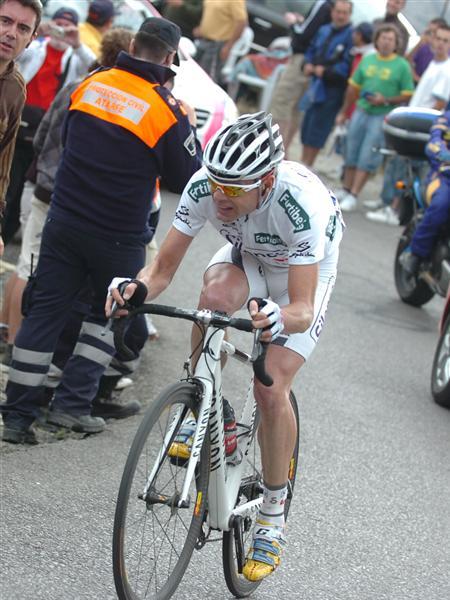
Evans takes up the story of the incident that lost him the Vuelta: "I punctured on the climb and was attended to by Shimano Neutral Assistance. [Samuel] Sanchez had been dropped and the team cars were 40 seconds behind. Neutral assistance stopped and I know that climb quite well and knew I could have kept riding but I wanted to change the wheel there because the descent ahead of the Sierra Nevada is quite fast and there's a corner there that I'd rather not take on a half-deflated tubular if I was to get to the finish safely.
"I stopped there, they arrived, and I don't know exactly what happened; there were two mechanics, about three different wheels and they couldn't put them in. Because it was such a ridiculous episode the TV and photographers stopped, blocking the team cars from coming through. It was the quick thinking of the Silence-Lotto team mechanic who thought, 'Shit, there's something wrong' and was running up through the traffic trying to give me my spare bike. I saw that and that's when I went.
"Because I had to change bikes I didn't take my bottle with me and there was still an hour to go - it was about 50km to the top of Sierra Nevada. It was down to five or six contenders - the guys who were there for the win - and I had to get a bottle so I grabbed one and they gave me a 10-second penalty. Ironically it was 1:23 for the wheel change and 10 second for the bottle and then I was second at 1:32 then third at 1:32 by the end of the race.
"I was just furious about it at the end...I felt that I didn't deserve that. It was really unlucky; that's the way it was and unfortunately people start saying, 'Oh, you can't win a race...' At least some people can see that maybe I was doing something right."
'Hometown' hero on the Novazzano
Those who had maintained faith in Evans - not least of all the man himself - were rewarded on September 27, when the Australian celebrated with a subdued salute at the end of a 262km world championship battle in Mendrisio, Switzerland. Having placed himself in all the right moves throughout the final two laps, Evans attacked in a 53x21 gearing - the first time he had ridden the climb in the big chainring - and soared to the heights many had thought impossible just a month earlier.
For all the setbacks, frustration and trying times, Evans had enjoyed a helping of Lady Luck's love and was able to demonstrate what was possible from one of Australia's best-ever riders. While he hadn't experienced the joy of standing on the top step of the podium in Paris, he was literally on top of the cycling world. Vindication was sweet.
"The Tibetan kid I sponsor in Nepal - even in his school where they don't know anything about cycling, if you say, 'Cadel won the world championships' it's like, 'Wow!' said Evans. "Whatever walk of life you're from or whichever sport you're from it certainly makes an impression. It's certainly been well-received here in Australia and I'd really like to repay people by racing on Australian soil in the rainbow jersey."
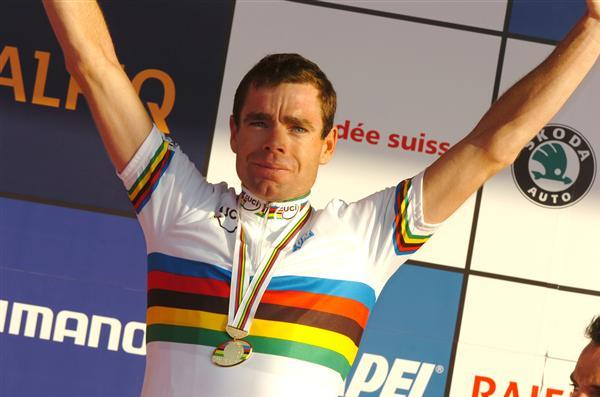
While cycling is still making its mark as a 'fringe' sport in Australia, Evans believes that his world championship win has had the impact for which he'd hoped. Rather than just seeing him as a Tour contender, Australian fans gained a glimpse at their hero in another light.
"I think the Tour captures the attention of a lot of people in Australia - it goes for three weeks so there's plenty to watch, especially for people coming into the sport. People followed me more for the journey more than the achievement, whereas at the worlds it was simple: he won it. It was for the journey a little bit but more about the result," said Evans.
The right fit for season 2010
Evans says that the win in Switzerland won't change his goals for next season and he's keen to honour the world champion's jersey, although his surroundings will be different. Having already ridden in the rainbow stripes as a Silence-Lotto team member, the Australian's kit will bear the BMC logo in 2010, the team announcing his departure on November 1.
Evans took the exit clause in his contract with Silence-Lotto and moved to Andy Rihs' team, co-owned by former US Cycling head honcho Jim Ochowicz and managed by former Phonak directeur sportif John Lelangue. He signed a three-year deal to ride beside the likes of experienced campaigners George Hincapie, Karsten Kroon and 2008 world champion Alessandro Ballan.
Evans' Tour experience obviously took its toll and he capitalised on the momentum in the BMC squad. "It [the move] had been in the works for a while - well before the world championships...We just wanted to do everything correctly, within the rules in terms of confidentiality and so on," he said.
"When the idea first occurred to me I thought, 'It's BMC, not a big team or anything...and of course when I'm making a decision like this I do a fair bit of research. Then we looked at the names [in the team] and the plans they have plus where they want to go, etc - everybody wants to go to the Tour de France in 2011," said Evans.
"At that point Andy Rihs and John Lelangue said, 'Maybe you'd be interested in going to the Tour in 2010...' I thought, 'Oh...' We had a couple of meetings and it was amazing how everything was in place and ready to go - I was just like, 'This is just such a neat fit for me'. John Lelangue lives in Belgium and we have a Swiss manufacturer for our bikes [as headline sponsor]. The company wants to improve its bikes the best way it can, using a professional team to do so. I thought, 'This is already a good start.'"
While BMC Racing hasn't received an official invitation to next year's Tour de France, it will be riding the Giro d'Italia, with a Tour berth looking more likely. And after Silence-Lotto struggled for years to deliver Evans a team capable of adequately supporting the Australian in France's Grand Tour, maybe looking a little closer to his adopted home may be the secret to finally making that top step come July 25 next year.